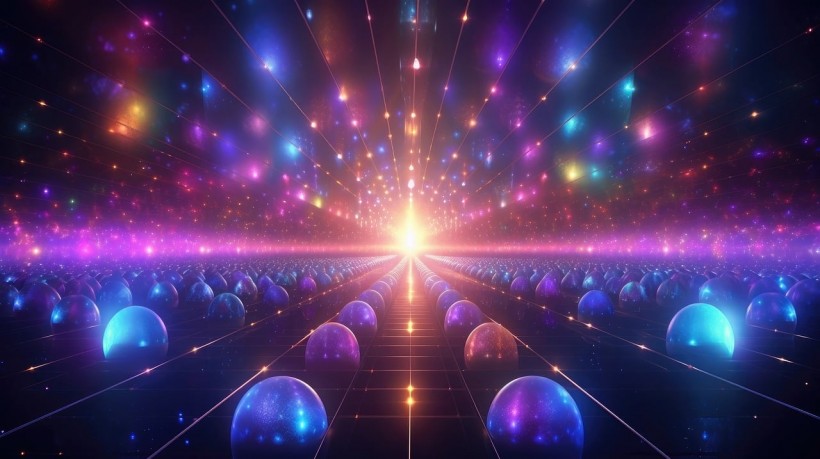A recent theoretical study proposes that the universe is merging with "baby universes," challenging dark energy's role in acceleration. This phenomenon, where the universe collides with and absorbs smaller parallel universes, is suggested as an alternative explanation for the ongoing cosmic expansion.

Cosmic Expansion: Is the Universe Expanding by Colliding to Baby Parallel Universes?
From Hubble's Revelation to Cosmic Shifts: Unraveling Paradoxes in the Expanding Universe
For centuries, astronomers grappled with fundamental questions about the nature of the universe, pondering its size, age, and structure. In 1929, Edwin Hubble's groundbreaking discovery that the universe is expanding provided crucial scientific insights.
The ancient Greeks had contemplated the concept of an infinite universe, grappling with the paradoxes it presented, and even Heinrich Olbers in the 1800s argued for a finite universe to reconcile the issue of darkness in the night sky. However, this idea conflicted with Newton's law of gravity, suggesting that a finite universe should collapse under its attractive forces.
Einstein, in developing the General Theory of Relativity, initially introduced the cosmological constant to maintain a static universe, which he later dubbed his "greatest blunder" after Hubble's findings.
Concurrently, advancements in telescope technology allowed astronomers like Vesto Slipher to analyze the spectra of faint, nebulous objects. Between 1912 and 1922, Slipher discovered systematic redshifts in the spectra of these objects, revealing their nature as distant galaxies. This revelation marked a significant shift in understanding, paving the way for modern cosmological theories.
READ ALSO: FLAMINGO Simulations: Unveiling Cosmic Secrets To Illuminate Universe's Evolution and Expansion
Merging Universes an Alternative to Dark Energy
Recent observations of the cosmic microwave background, a remnant of the Big Bang, indicate the universe's accelerated expansion. The Standard Cosmological Model attributes this to dark energy, a mysterious force. However, the enigmatic nature of dark energy prompts skepticism among astrophysicists, leading to the exploration of alternative explanations.
In a December 2023 study, titled "Is the present acceleration of the Universe caused by merging with other universes?" published in the Journal of Cosmology and Astroparticle Physics, researchers propose an alternative theory: the universe's expansion results from continuous mergers with other universes.
Physicist Jan Ambjørn suggests that this model, involving the absorption of "baby universes," may better align with observational data than the Standard Cosmological Model.
While the concept of multiple universes interacting is not new, this study develops a mathematical model to explore their hypothetical impact on the universe's evolution.
Calculations indicate that merging with other universes should increase the volume of the cosmos, resembling an expansion. The proposed theory also addresses the problem of cosmological inflation, suggesting that the young universe's rapid early expansion could result from absorption by a larger universe, eliminating the need for a hypothetical inflaton field.
The researchers propose that the newly enlarged universe continues to collide with and absorb other "baby universes" after being absorbed. While their theory addresses cosmological challenges, validation depends on observational data, and ongoing experiments on microwave background properties may provide insights in the future.
RELATED ARTICLE: Universe Expansion Could Stop as Dark Energy Weakens and Contract Very Slowly
Check out more news and information on Space in Science Times.



![Earth's Quasi-Moon Kamo‘oalewa Could Originate From Lunar Surface Not Asteroid Belt [Study]](https://1721181113.rsc.cdn77.org/data/thumbs/full/53275/89/56/50/40/earths-quasi-moon-kamo-oalewa-could-originate-from-lunar-surface-not-asteroid-belt-study.png)










